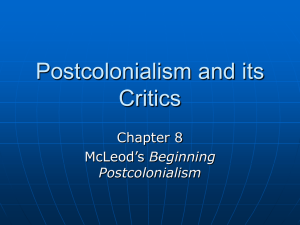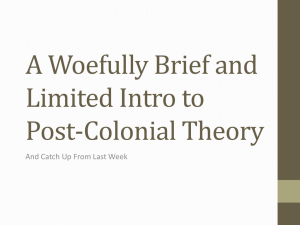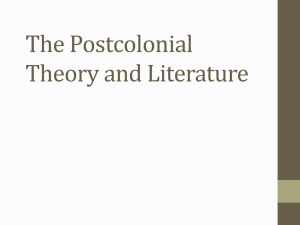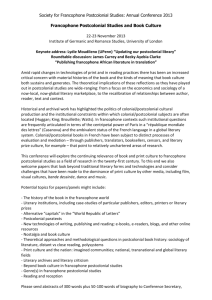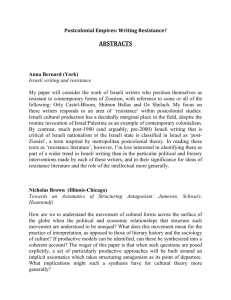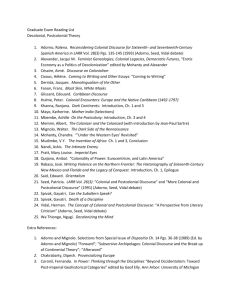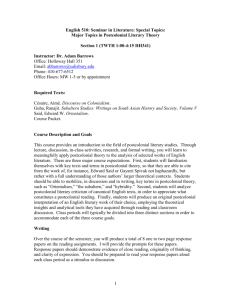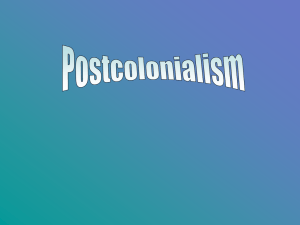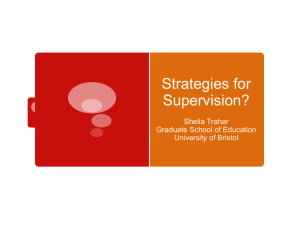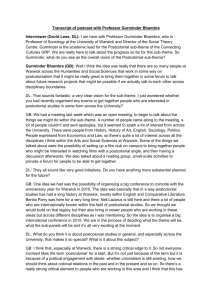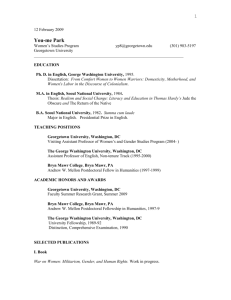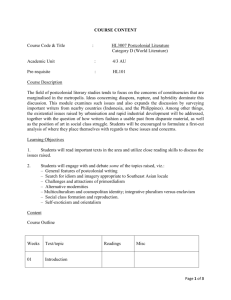platform for postcolonial readings - VUB
advertisement
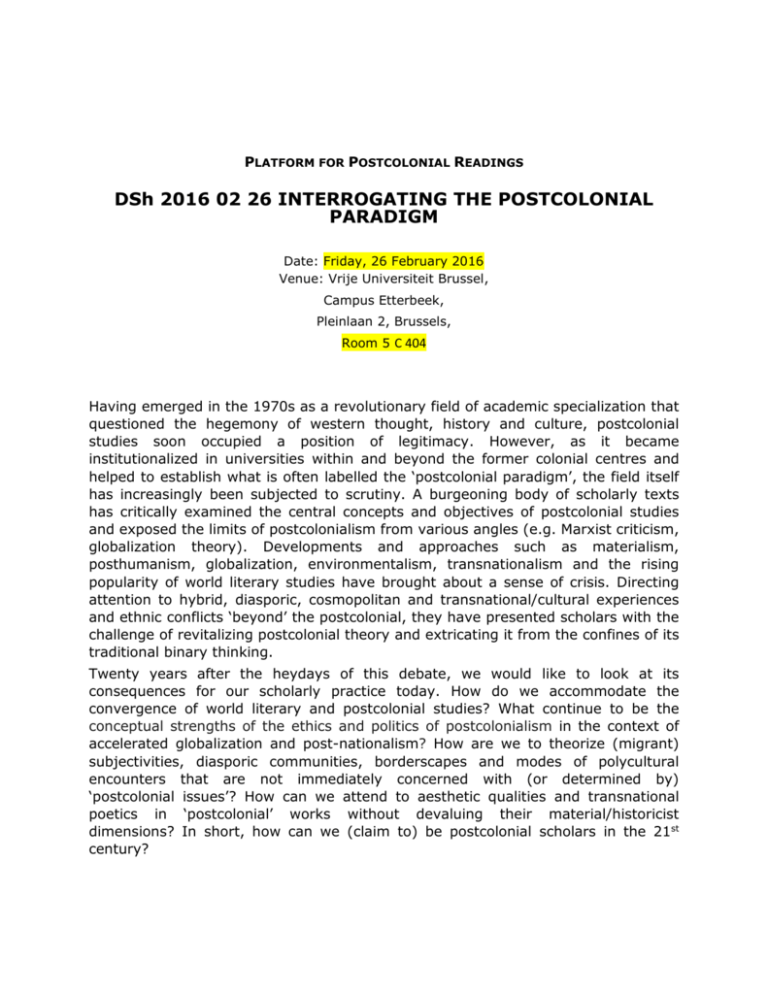
PLATFORM FOR POSTCOLONIAL READINGS DSh 2016 02 26 INTERROGATING THE POSTCOLONIAL PARADIGM Date: Friday, 26 February 2016 Venue: Vrije Universiteit Brussel, Campus Etterbeek, Pleinlaan 2, Brussels, Room 5 C 404 Having emerged in the 1970s as a revolutionary field of academic specialization that questioned the hegemony of western thought, history and culture, postcolonial studies soon occupied a position of legitimacy. However, as it became institutionalized in universities within and beyond the former colonial centres and helped to establish what is often labelled the ‘postcolonial paradigm’, the field itself has increasingly been subjected to scrutiny. A burgeoning body of scholarly texts has critically examined the central concepts and objectives of postcolonial studies and exposed the limits of postcolonialism from various angles (e.g. Marxist criticism, globalization theory). Developments and approaches such as materialism, posthumanism, globalization, environmentalism, transnationalism and the rising popularity of world literary studies have brought about a sense of crisis. Directing attention to hybrid, diasporic, cosmopolitan and transnational/cultural experiences and ethnic conflicts ‘beyond’ the postcolonial, they have presented scholars with the challenge of revitalizing postcolonial theory and extricating it from the confines of its traditional binary thinking. Twenty years after the heydays of this debate, we would like to look at its consequences for our scholarly practice today. How do we accommodate the convergence of world literary and postcolonial studies? What continue to be the conceptual strengths of the ethics and politics of postcolonialism in the context of accelerated globalization and post-nationalism? How are we to theorize (migrant) subjectivities, diasporic communities, borderscapes and modes of polycultural encounters that are not immediately concerned with (or determined by) ‘postcolonial issues’? How can we attend to aesthetic qualities and transnational poetics in ‘postcolonial’ works without devaluing their material/historicist dimensions? In short, how can we (claim to) be postcolonial scholars in the 21st century? Addressing the manifold ways of INTERROGATING THE POSTCOLONIAL PARADIGM and the challenges presented to postcolonial thinking and its creative expression in the arts, the Platform for Postcolonial Readings invites in particular junior researchers for a meeting that will consist of an introductory lecture by Roy Sommer, professor of English at the University of Wuppertal and an expert in multicultural and postcolonial fiction, literary theory and narratology; a collective close reading and discussion of recent contributions to the debate which interrogate the postcolonial paradigm from various angles; junior scholars presenting their own research in the light of the day’s topic, followed by debate; a reading and joint on-the-spot-analysis of recent work by New Zealand novelist and short-story writer Paula Morris (www.paula-morris.com). A reader will be distributed in preparation of the seminar, which is open to all researchers, Research Master and PhD students working in the field of postcolonial studies. Please register with Dr. Eloe Kingma of NICA/OSL (nica-fgw@uva.nl). Call If you want to present your research project in the light of the meeting’s topic, please contact Dr. Janine Hauthal (Janine.hauthal@vub.ac.be) or Prof. dr. Elisabeth Bekers (elisabeth.bekers@vub.ac.be) by Monday 1 February 2016. Credits Active participation by Research Master students may be credited with 1 or 3 EC (without/with presentation). The Platform researchers in postcoloniality reading group, for Postcolonial Readings organizes seminars for all (junior) the Netherlands and Belgium who are committed to issues of and globalization. As an open network, platform for debate, and our meetings are open to all. Platform organizers: Elisabeth Bekers (VUB), Sarah De Mul (OU), Isabel Hoving (UL), Liesbeth Minnaard (UL); guest organizer: Janine Hauthal (VUB-FWO Vlaanderen)
